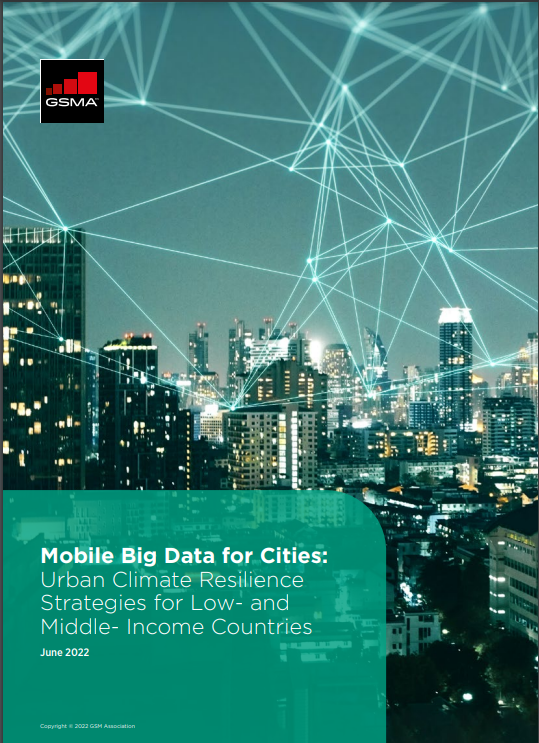Cities in low- and middle-income countries (LMICs) are increasingly vulnerable to the impacts of climate change, including rising sea levels and storm surges, heat stress, extreme precipitation, inland and coastal flooding and landslides. The physical effects of climate change have disrupted supply chains, led to lost productivity from health issues and incurred costs associated with rebuilding or repairing physical assets, such as buildings and transport infrastructure.
Resulting from the adverse effects of climate change, municipal governments and systems often lack the adaptive capacity or resources to keep up. Hence, the adaptative capacity of cities can be enhanced by corresponding to more comprehensive and real-time data. Such data will give municipal agencies the ability to watch events as they unfold, understand how demand patterns are changing and respond with faster and lower-cost solutions. This provides a solid basis for innovative data sources, such as mobile big data (MBD), to help strengthen urban climate resilience.
This study highlights the potential value of using mobile big data (MBD) in preparing for and responding to climate-related disasters in cities. In line with the “3As” of urban climate resilience, a framework adopted by the GSMA Mobile for Development programme, this study examines how MBD could help cities and their populations adapt to multiple long-term challenges brought about by climate change, anticipate climate hazards or events and/or absorb (face, manage and recover from) adverse conditions, emergencies or disasters.


